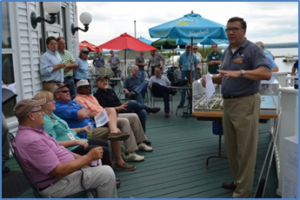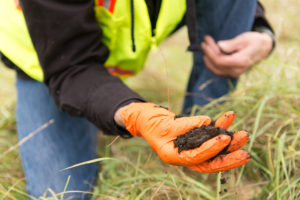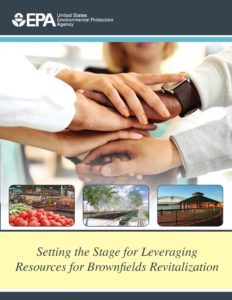Citing his creative solutions to solving complex redevelopment challenges, the Public Policy Forum has chosen David Misky, Assistant Executive Director-Secretary for the Redevelopment Authority of the City of Milwaukee (RACM) and the Co-Chair of the Wisconsin Brownfields Study Group, as the recipient of the 2016 Norman N. Gill Award for Individual Excellence. The award will be presented at the Forum’s “Salute to Local Government” event on June 21, 2016 in Milwaukee.
Misky joined RACM in 2003 and was appointed Assistant Executive Director-Secretary in 2008. He led the agency’s redevelopment efforts in the Menomonee Valley, the Villard Library project, the 440th Local Redevelopment Plan and on efforts at Century City and the Harbor District. Under his leadership, RACM has been a national leader in securing federal brownfield grants and Milwaukee has become an EPA “showcase community.” He also helped to organize a unique Brownfield Revolving Loan Fund and has played a leading role in the city’s efforts to aggressively address tax delinquent and blighted properties.
Established in 1913 as a good government watchdog, the Public Policy Forum is a private, non-profit, independent research organization dedicated to enhancing the quality of public policy decision-making in southeast Wisconsin.
As Co-Chair of the Brownfields Study Group, Misky helps lead a wide-ranging group of professionals evaluating the state’s current brownfields policies and, where necessary, recommending changes and proposing additional incentives for the cleanup and reuse of abandoned or underused properties with real or perceived contamination.



